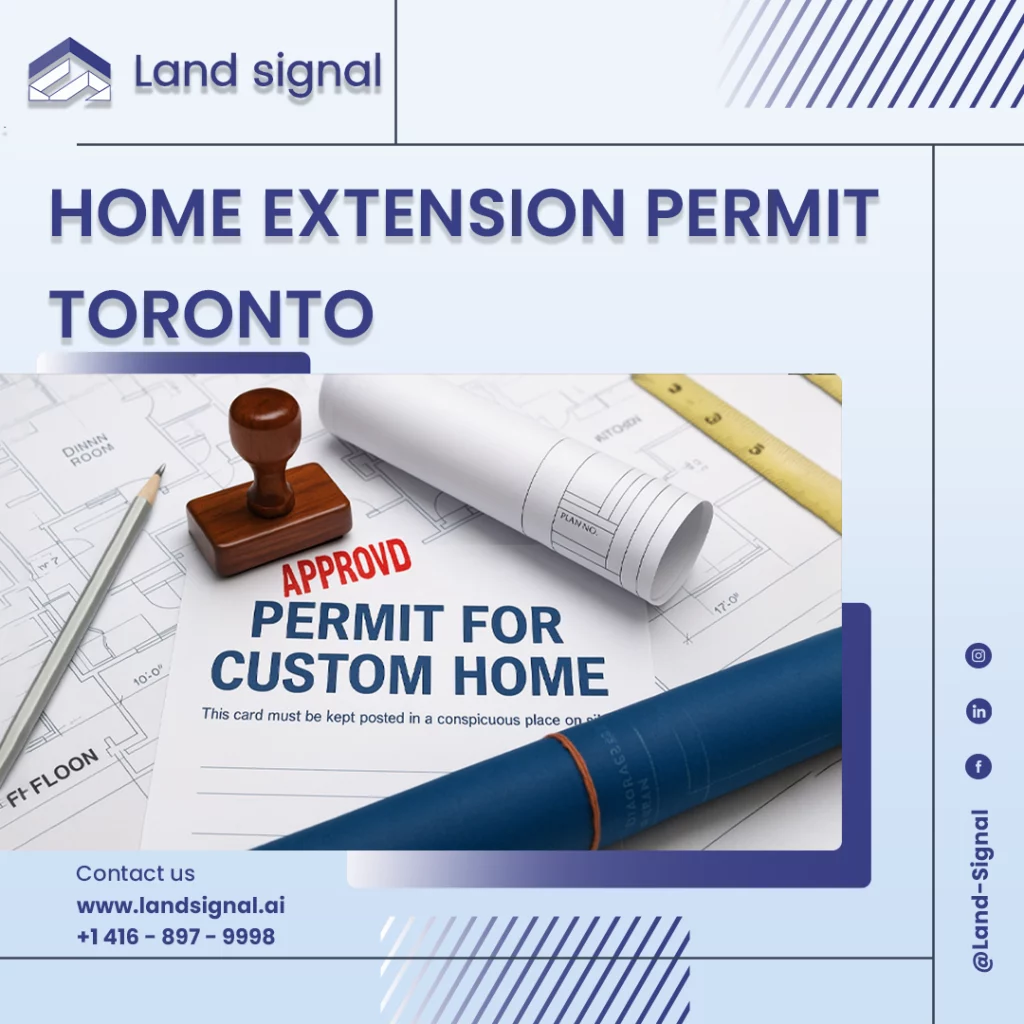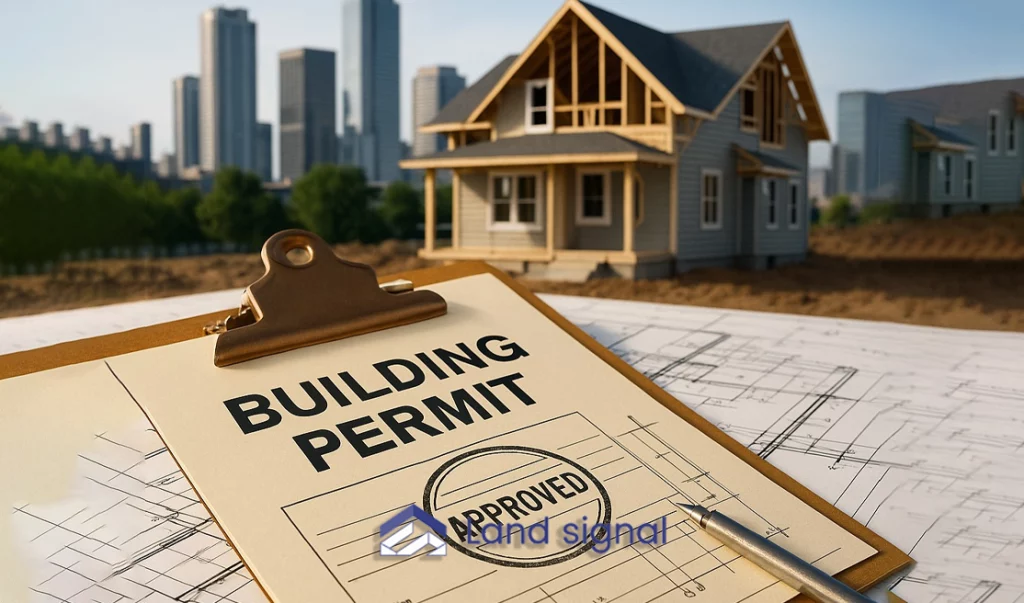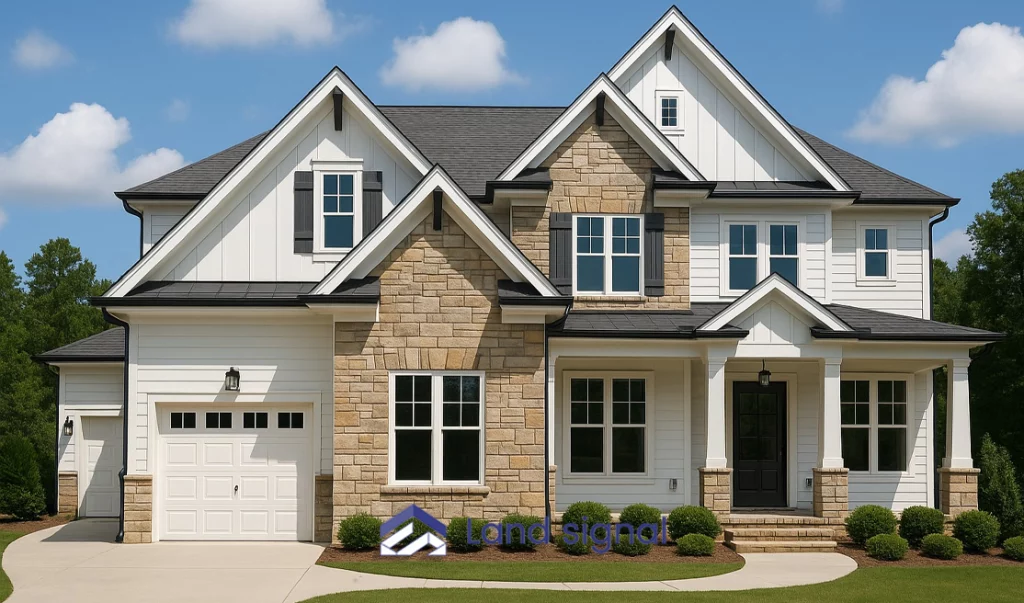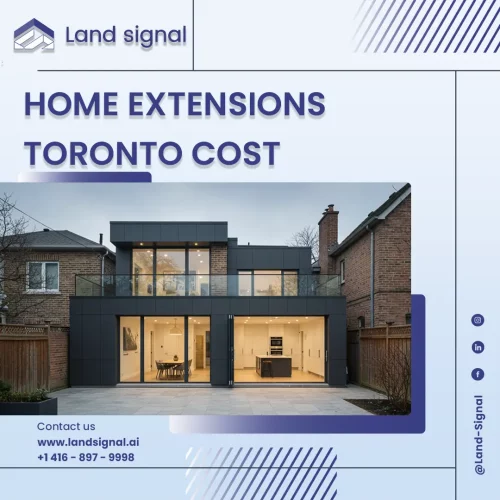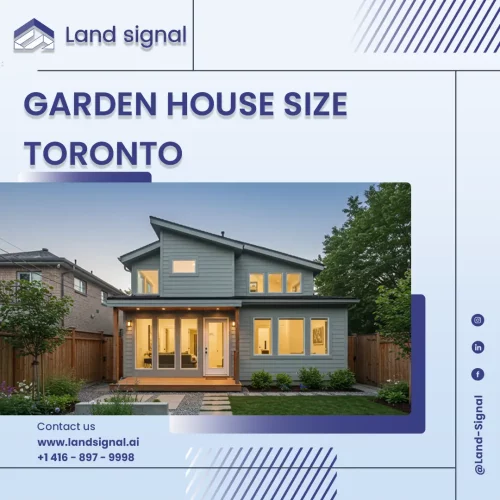Building a custom home in Toronto requires obtaining a building permit to ensure compliance with the Ontario Building Code and local zoning bylaws. The process involves submitting detailed plans, including site and architectural drawings, for municipal review. Starting construction without an approved permit can lead to fines, delays, or mandatory removal of unauthorized work.
In this blog, we’ll guide you through the essential steps to secure a permit for custom home in Toronto, ensuring your dream residence meets all city regulations.
Start Your Project with Confidence
At Land Signal, we assist with construction and renovation permits, as well as Garden House and Laneway Suite designs. Let our experts guide you through every step.
Steps to Obtain a Permit for Custom Home Building in Toronto
Preliminary Planning and Design
Start by working with experienced architects or designers who can help bring your custom home plans to life. Make sure your design follows the Ontario Building Code and meets all local zoning bylaws to avoid issues later in the process.
Prepare Required Documentation
Gather all necessary documents, including:
- Site Plan
- Architectural Drawings
- Structural Details
- Mechanical and Electrical Plans
- Energy Efficiency Design Summary
These documents should accurately reflect your proposed construction and demonstrate compliance with applicable regulations.
Submit the Application
Submit your complete application package to the City of Toronto’s Building Division. Applications can be submitted electronically through the city’s online portal or in person at a Toronto Building customer service counter.
Application Review and Approval
Once submitted, your application will undergo a thorough review process to ensure compliance with the Ontario Building Code, zoning bylaws in Toronto, and other applicable laws. The review timeline varies depending on the complexity of the project but generally takes between 10 to 15 business days.
Obtain the Building Permit
If your application meets all requirements, the City will issue a building permit, granting you legal permission to commence construction. It’s important to note that construction must begin within six months of permit issuance, or the permit may expire.
Schedule Mandatory Inspections
Throughout the construction process, you are required to schedule and pass various inspections at key stages, such as:
- Footing Inspection
- Framing Inspection
- Plumbing and Mechanical Inspections
- Final Building Inspection
These inspections ensure that the construction adheres to approved plans and complies with all regulations.
Additional Considerations
- Understanding Zoning and Committee of Adjustment: If your proposed design doesn’t comply with existing zoning bylaws, you may need to apply for a minor variance through the Committee of Adjustment. This process involves public hearings and can extend the timeline, so it’s essential to factor this into your planning.
- 2. Considering Site Plan Approval: For larger or more complex projects, a separate site plan approval may be necessary. This process evaluates how your proposed construction interacts with the surrounding environment, including landscaping and infrastructure.
- Being Aware of Permit Validity and Extensions: Building permits in Toronto are typically valid for a specific period. If construction doesn’t commence within this timeframe, the permit may expire, requiring a renewal or reapplication. It’s important to be aware of these timelines to avoid unnecessary delays.
Read Also: A Comprehensive Guide Home Extension Permit Toronto
Common Mistakes to Avoid
- Providing Incorrect or Incomplete Information: Submitting inaccurate or incomplete details can lead to significant delays or rejection of your permit application. Ensure all information is accurate and complete before submission.
- Underestimating Approval Timelines: Assuming quick approvals can be misleading. The review process involves multiple departments and can take longer than anticipated, especially for complex projects.
- Starting Construction Without a Permit: Commencing construction without an approved permit is a serious violation. It can lead to hefty fines, legal complications, and even mandatory demolition of unauthorized work.
How Land Signal Simplifies the Custom Home Permit Process
Navigating Toronto’s building permit requirements can be complex, but Land Signal’s professional experts are here to help. Our experienced team provides guidance on zoning rules, prepares accurate documentation, and ensures your custom home project meets all regulations. By working with Land Signal, you can avoid costly mistakes, prevent delays, and confidently move your project forward.
Conclusion
Securing a permit for custom home in Toronto is essential for a successful, compliant build. By carefully following the application steps, preparing accurate documents, and avoiding common pitfalls, homeowners can navigate the process smoothly. Considering zoning, inspections, and permit timelines ensures your project stays on track, helping you bring your custom home vision to life without costly setbacks or legal issues.

